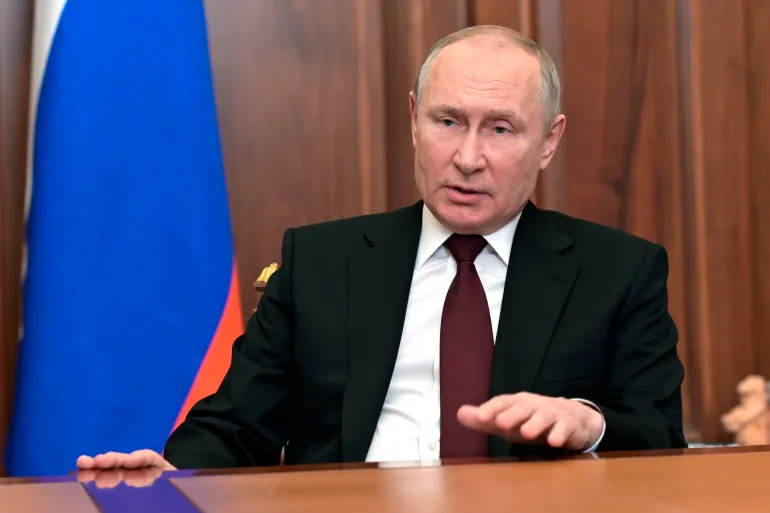
TAURAI MANGUDHLA RUSSIAN investments in Zimbabwe running into billions of United States dollars are under threat as the US and the European Union (EU) gang up in imposing restrictive sanctions on the Kremlin, its financial services sector, individuals and corporates to suffocate President Vladimir Putin’s war against Ukraine.
The restrictions include the exclusion of Russian banks from Swift — a cooperative society providing services related to the execution of financial transactions and payments between banks worldwide.
More than 11 000 institutions and 200 countries use Swift to make payments. The exclusion of Russia hinders the smooth flow of funds into and out of Russia.
Zimbabwe will not be spared from the effects of such embargoes.
Washington and the EU barred some of Russia’s banks from the Swift. The US also targeted military end-users, including the Russian defence ministry.
Russian ambassador to Zimbabwe and Malawi, Nikolai Krasilnikov told the Zimbabwe Independent in an exclusive interview that mitigatory measures were in place to minimise effects of sanctions imposed on Russia by the West.
“Russia-Zimbabwe investment co-operation has good prospects with two projects taking the lead. They are the Great Dyke Investment for developing platinum group metals (PGM) deposits and Alrosa-Zimbabwe for diamond exploration,” Krasilnikov said.
“There is a great interest in Russia to do business in Zimbabwe beyond mining. ICT, agriculture, energy, transport, pharmaceutics are the spheres in the focus of attention.”
- Chamisa under fire over US$120K donation
- Mavhunga puts DeMbare into Chibuku quarterfinals
- Pension funds bet on Cabora Bassa oilfields
- Councils defy govt fire tender directive
Keep Reading
Great Dyke’s mining project needs US$2 billion to take off and has potential to produce 860 000 ounces of PGM annually.
On the other hand, Alrosa established a diamond mining joint venture (JV) with Zimbabwe. Under the arrangement, it owns 70% of the JV and is to invest US$412 million in the project.
So far, the government has allocated 40 claims to the JV.
Zimbabwe’s arms supply deal with Russia will also suffer as it is hit by the war sanctions.
Krasilnikov said there were preparations for the Fourth Session of the Joint Commission on Economic, Trade, Scientific and Technical Cooperation, which is on the bilateral agenda where Russia will discuss ways of enhancing partnerships despite attempts by Western countries led by the US to affect Russian integration into international business.
“Russia has friends and allies, numerous partners in the international arena who did not lose their independence and ability to put their interests first,” Krasilnikov said.
“So, together we are capable of standing against any pressure. As we take the issue of the Western sanctions against Russia in a broader context, it is evident that my country is a major supplier of oil to Europe.
“As ever, Russia has been fulfilling all its obligations, attending to all orders, exporting oil and petrochemicals as planned. At the same time we see our partners – traders, shipping companies and banks – coming under enormous pressure,” he added.
Krasilnikov warned that actions by the West would only destabilise the market as Russian oil will have severe consequences for the world market with unpredictable price increases.
“We hope that Western leaders will realise that blindly following Anglo-Saxon foreign policy commands carries direct, significant risks to the global socio-economic development and prosperity,” he said.
“International relations experts believe the sanctions will “flatten the Russian financial system, crash the country’s official currency, the rouble, spur a likely sovereign default, and probably move the Russian economy into a depression.”
Having a long list of projects being implemented, particularly since the inauguration of current Zimbabwean ruler Emmerson Mnangagwa in 2017, Harare will feel the impact of the Russia-Ukraine war that has caused a spike in fuel prices.
However, none of the Russian investors in Zimbabwe have been slapped with sanctions.
Economic expert Eddie Cross said Russian investments to Zimbabwe will suffer.
“The war complicates everybody’s relationship with the Russians. It’s going to affect the entire world by raising energy prices. It’s going to be difficult to procure things like wheat and basic commodities, even nickel and palladium,” he said.
“It will have a knock-on effect and the fact that the West has basically frozen Russia’s main assets including 50% of Russia’s foreign reserves, I think this will automatically have an effect on Russian activities throughout the world and it will certainly complicate the lives of those that are trying to invest in Zimbabwe.
“The rouble has lost 80% of its value in two weeks and this makes it difficult for any Russian to contemplate foreign investment,” Cross added.
There have been concerns in Harare with officials in government indicating that they were closely monitoring the situation.
However, government officials have remained mum on the Russia-Ukraine war.
“We have been instructed not to comment on this issue. If we take Russia’s side then the EU and the US will be on our case and this will give us problems. If we take Ukraine’s side then our friends in Russia will feel betrayed,” a high level government source said.
“We will be affected by the war like everyone else. When Covid-19 was first reported, we thought it was not going to affect us but we lost thousands of lives. This war seems to be something very alien but we have already witnessed fuel prices going up.”
Efforts to get an official comment from the Ministry of Foreign Affairs were fruitless at the time of going to print.
Deputy minister David Musabayana declined to comment.
Repeated efforts to get comments from Alrosa and Great Dyke Investments were fruitless yesterday.











